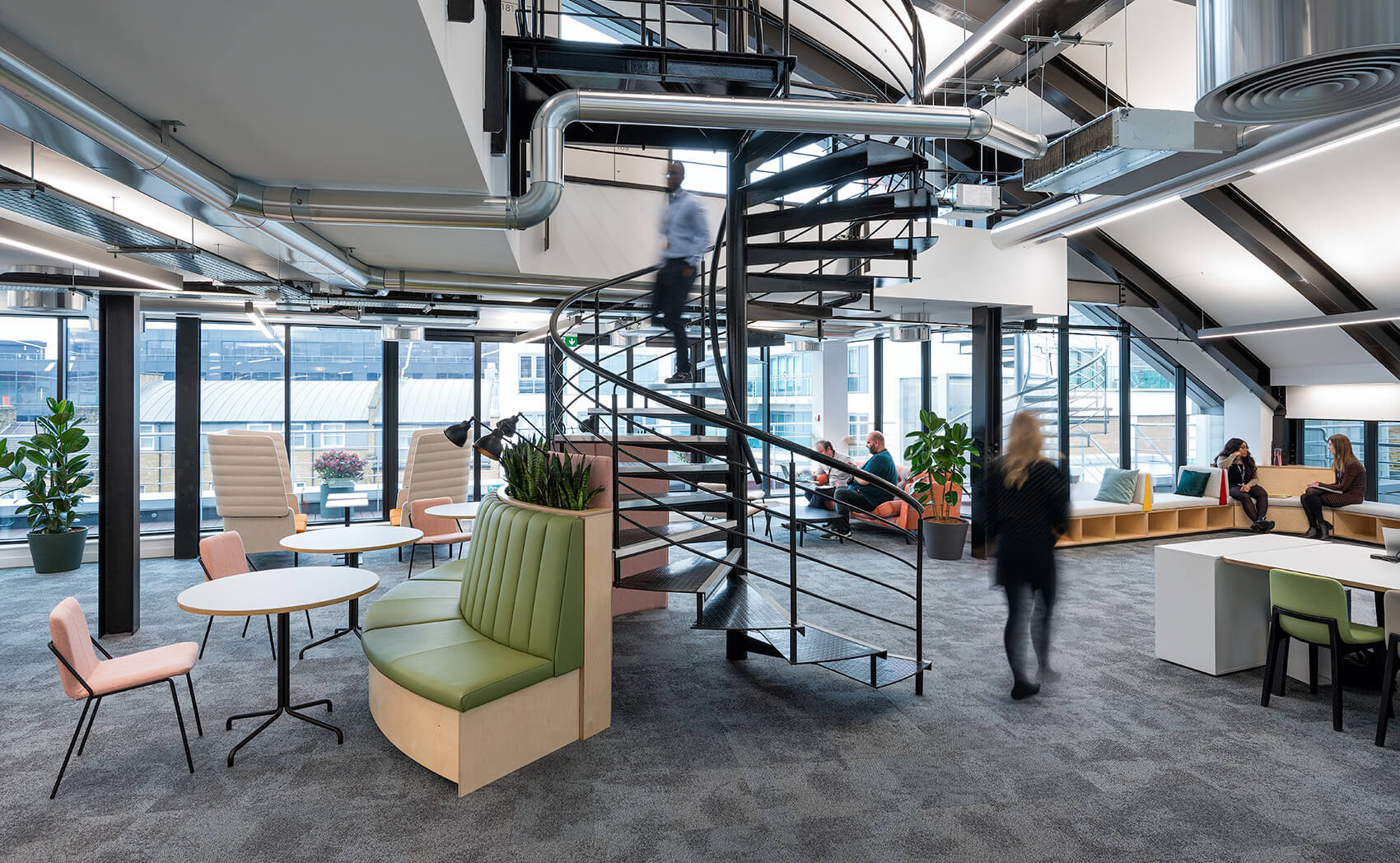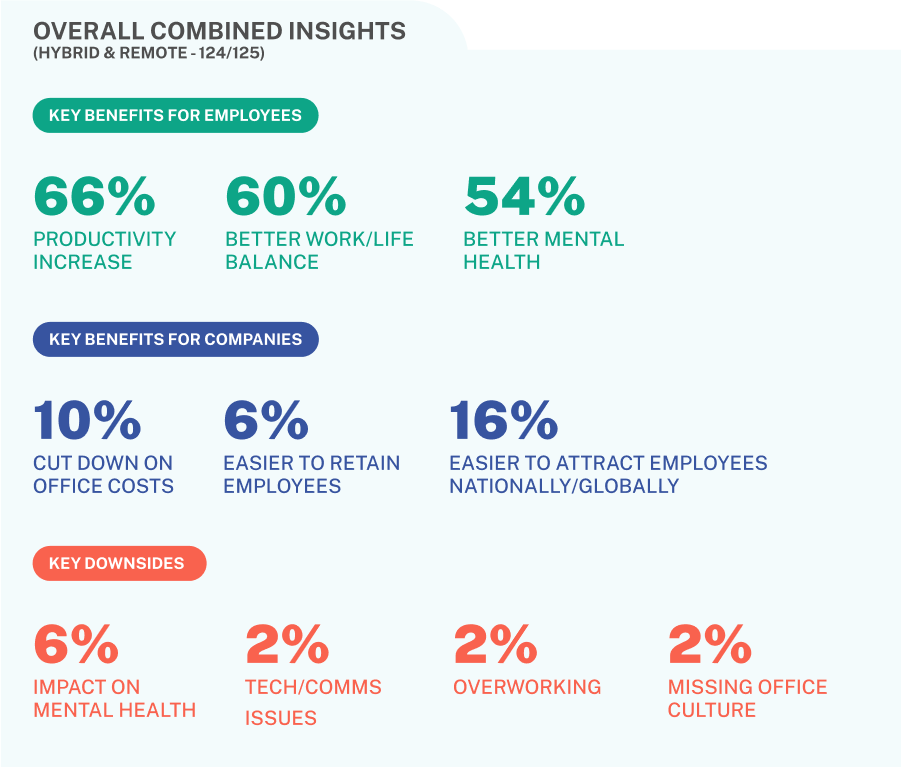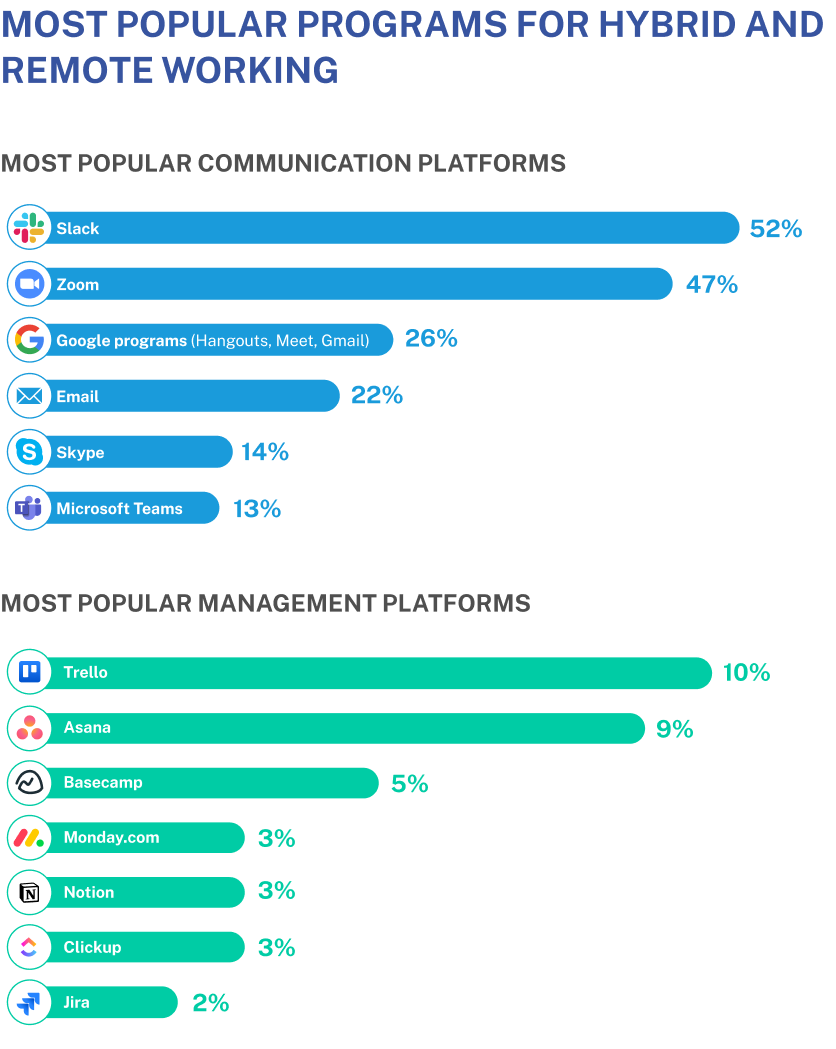Comments
- No comments found

More and more organizations are asking their employees to come back to the office.
The power is shifting to employers now amid the popularity of hybrid-work, which gives employees flexibility in how and where they work and offers a better work-life balance.
Employees want more control over their days.
While famous business owners such as Elon Musk and Alan Sugar recently claimed that people working from home are essentially 'slacking off', new data on the matter tells a different story.
Expert Market, a business solutions comparison website, spoke to CEOs, founders and decision makers from 125 European and North American companies in May 2022 about their hybrid/remote operations since the COVID pandemic began. They highlighted the main benefits and drawbacks they’d seen for their employees and their company, as well as what programs and platforms they've used to keep their operation going.
Here are the key findings:
92% saw positive benefits of flexible working options - with only 16% reported negative impacts
94% stated that they will continue working in a hybrid/remote way
Slack was the most popular program for workplace communication - 52% stated so
Only one of the companies has returned to the office completely
Expert Market conducted a similar report with 100 business owners in May 2020 around remote working. 90% of companies then saw positive WFH benefits - the recent May 2022 report shows an increase to 92%. Some of the key benefits and downsides they stated were:

Due to the success of these setups, 94% of the companies stated that they will continue working in a hybrid/remote way in the future.
Only 7% of the hybrid companies aim to eventually return to the office full time in the next couple of years. The remaining 93% will continue in a hybrid way. We asked them how many days working from the office - the most popular options stated were ‘At employee discretion’ (38%) and 2 days in the office per week (26%).
Almost three out of four (74%) of the fully remote companies we spoke to stated that they will stay remote. 22% will move to a hybrid way of working, and 4% aim to return to the office in the next year.
An emerging trend stated by some remote companies is to use co-working spaces - such as WeWork - for any employees who’d like office time with fellow colleagues:
‘We don’t plan on returning to the office full-time in the future, but we’ll offer flexible workspace options to our employees. Giving WeWork access to all team members for a more flexible workspace that provides for the needs of employees who enjoy working in an office environment.’ Monica Chan, Co-Founder of DigiWorks
In the latest findings, only 16% stated that there were negative impacts of hybrid/remote working including - Isolation having an impact on employee mental health (6%), tech/communication issues (2%), issues with employees overworking (2%), and missed office culture/relationships (2%). This is a huge difference from the 2020 report, when 71% of business owners said they’d witnessed negative impacts, such as a reduction in productivity, difficulty maintaining the work/life balance, and difficulty in assessing accountability.
Expert Market also asked the 125 companies which programs they’ve relied on the most for hybrid and remote working. Slack was the most widely used work chat program with 52% of the companies using it. For video chat platforms, Zoom was most popular with 47% of the companies using it for communicating with colleagues and clients. Here’s the breakdown of the most used communication channels:

Some of the CEOs found that flexible working changed their whole attitude around how to operate a business:
“Throughout my career, I was a firm believer that you build successful teams by working in-person day-to-day.
The pandemic opened my eyes to the possibility of building great teams that thrive in a completely remote and/or hybrid setting. With my current startup, we are completely remote and the benefit of this is being able to recruit and retain top talent across the world. We do not have plans for a physical office building at this time.
Every employee has a unique life, meaning their family situations are different, their living situations are different, and their hobbies are different. An understanding and appreciation for these differences are key to having a hybrid or fully remote workplace and one that inspires and empowers its team. When a team feels supported and respected, they will deliver great results.’ Jason Brown, Founder and CEO of Family Central
Expert Market editor Chloe Mayo commented on the findings: “It’s hardly surprising that businesses are keen to keep their flexible working practices considering the improvements in employee productivity and happiness, and a better work-life balance. It seems that the workplace changes brought on by the pandemic have helped businesses and employers better understand how to get the most out of their employees; essentially, by giving employees more control over where and how they work best.”
Felix is the founder of Society of Speed, an automotive journal covering the unique lifestyle of supercar owners. Alongside automotive journalism, Felix recently graduated from university with a finance degree and enjoys helping students and other young founders grow their projects.
Leave your comments
Post comment as a guest